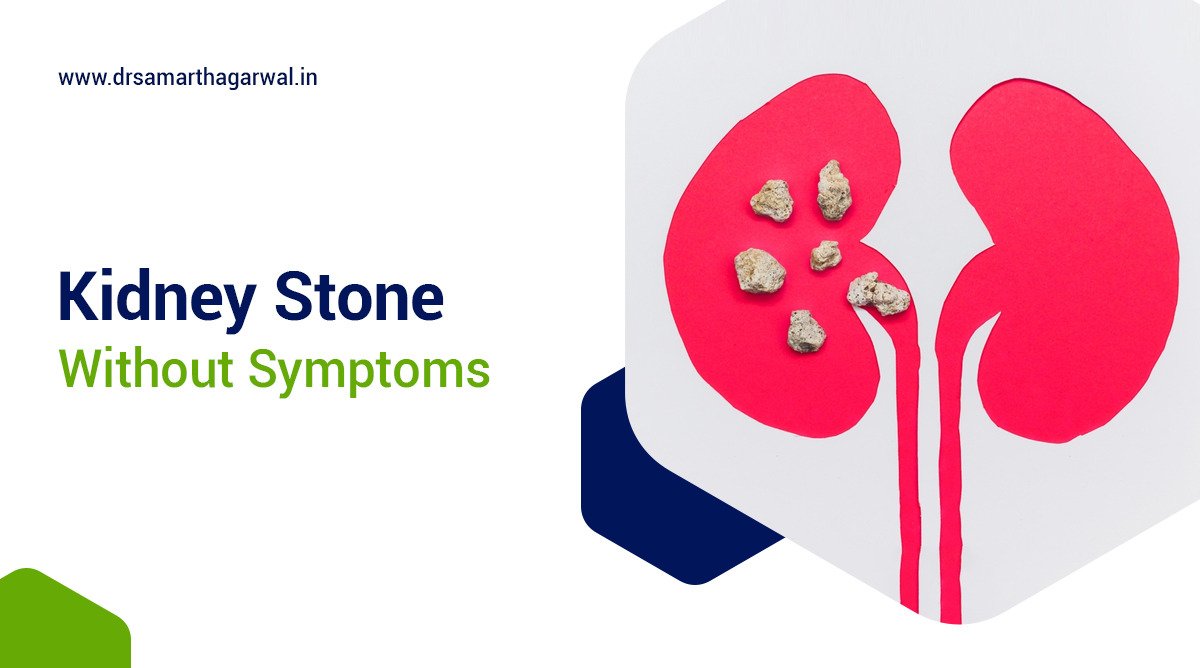Kidney stones are small, hard deposits that form in the kidneys from various substances, including calcium, oxalate, and uric acid. Kidney stones can range in size from a grain of sand to a lemon. Many people are unaware that they can have kidney stones without experiencing any symptoms. In this article, we will discuss the signs and causes of kidney stones, as well as treatment options.
Symptoms of kidney stones can include severe pain in the side or back, frequent urination, painful urination, nausea, vomiting, and blood in the urine. It is important to note that not all kidney stones cause symptoms, and some individuals may not know they have one until it is diagnosed through imaging tests. The severity and duration of symptoms vary depending on the size and location of the stone.
The exact cause of kidney stones is not entirely clear, but certain risk factors increase the likelihood of developing them. These risk factors include a family history of kidney stones, dehydration, certain medications, diet, and certain medical conditions, such as gout or hyperparathyroidism.
Treatment options for kidney stones depend on their size and location. Small stones may pass through the urinary tract on their own, while larger stones may require medications, shock wave lithotripsy, or surgery to remove them. If you experience symptoms of kidney stones, such as severe pain, frequent urination, or blood in your urine, it is important to consult a healthcare professional for a proper diagnosis and treatment plan.
You might also like: Shockwave Therapy for Kidney Stones
Can you have kidney stones without symptoms?
Yes, kidney stones can exist without causing symptoms, remaining undetected until imaging tests are conducted for other reasons. These stones may stay in the kidneys for years without causing any discomfort or damage. However, when kidney stones pass through the urinary tract, they typically cause symptoms such as severe pain, nausea, vomiting, and blood in the urine.
The presence of kidney stones can be diagnosed through symptoms, physical examination, and imaging tests like computed tomography (CT) scans and ultrasounds. Treatment options vary based on factors like stone size, location, and symptoms, ranging from home remedies to surgical procedures. Additionally, preventive measures, including dietary changes and medication, can help reduce the risk of recurrent kidney stones.
Can you live a long life with kidney stones?
Individuals can lead a normal life with kidney stones, as they usually don’t drastically reduce quality of life or lead to death. However, some may require treatment if stones are large or causing symptoms. Preventive measures, such as dietary adjustments and increased fluid intake, can reduce the likelihood of stone recurrence.
Regular follow-ups with a healthcare provider are crucial for monitoring and managing kidney stone-related issues. While most kidney stones pass without long-lasting damage, occasional complications may occur, emphasizing the importance of prompt medical attention for symptoms.
Can you have silent kidney stones?
Yes, silent kidney stones are asymptomatic and are often discovered incidentally during X-rays or health exams. Although they don’t cause pain, they can lead to other issues like urinary tract infections or blood in the urine.
Can kidney stones go undetected in a urine test?
Kidney stones can sometimes go undetected in a routine urine test. While urine tests can reveal high levels of minerals associated with kidney stones, not all stones produce symptoms or show up in urine tests. In some cases, additional imaging tests like abdominal x-rays or CT scans may be needed to confirm the presence of kidney stones.
These imaging tests can provide more detailed information about the size and location of the stones, helping healthcare professionals make an accurate diagnosis and determine the appropriate treatment plan. Additionally, blood tests may also be conducted to assess certain minerals in the blood that can contribute to the formation of kidney stones.
Therefore, while urine tests play a crucial role in diagnosing kidney stones, they may not always detect the presence of stones, especially if they are small or not causing any symptoms. It’s essential for individuals experiencing symptoms suggestive of kidney stones, such as severe pain in the back or side, blood in the urine, or difficulty urinating, to seek medical attention promptly for further evaluation and diagnosis.
You may also like: Kidney Stone in Female Symptoms
What are the symptoms of a subtle kidney stone?
Subtle kidney stones may not always produce noticeable symptoms, but when they do, they can include:
- Pain: Typically, kidney stone pain starts as a dull ache in the back or side, below the ribs, and may radiate to the lower abdomen and groin as the stone moves through the urinary tract. The pain may come and go and can vary in intensity.
- Urinary Symptoms: You might experience changes in your urinary habits, such as increased frequency of urination, urgency to urinate, or pain or burning sensation during urination.
- Blood in Urine (Hematuria): Kidney stones can cause blood to appear in the urine, which might be visible or detected only under a microscope.
- Nausea and Vomiting: Some people with kidney stones may experience nausea and vomiting, especially if the pain is severe.
- Cloudy or Foul-Smelling Urine: The presence of kidney stones can sometimes lead to changes in the appearance or odor of urine.
- Urinary Tract Infection (UTI) Symptoms: In some cases, kidney stones can lead to UTIs, which can cause symptoms such as fever, chills, and a strong, persistent urge to urinate.
You might also like: Infected Kidney Stone Treatment
These symptoms can vary depending on the size and location of the kidney stone, as well as individual differences in pain tolerance and sensitivity. If you suspect you have a kidney stone or are experiencing any of these symptoms, it’s essential to seek medical evaluation and treatment.
Can you pass a kidney stone without pain?
No, it is generally not possible to pass a kidney stone without experiencing pain. Passing a kidney stone is typically a very painful process.
Kidney stones are hard deposits made of minerals and salts that form inside the kidneys. As they pass through the urinary tract, they can cause severe pain. The pain associated with passing a kidney stone is caused by the stone irritating and obstructing the urinary tract as it tries to pass. This can lead to intense, cramping pain in the back, abdomen, or groin.
There is no way to pass a kidney stone without experiencing this pain. The only way to avoid the pain is to prevent the stone from forming in the first place or to have it removed through medical procedures. Some people may experience less severe pain if the stone is small enough to pass relatively easily. However, even small stones can still cause significant discomfort during the passing process.
Pain management techniques like drinking lots of fluids, taking pain medication, and applying heat can help reduce the severity of the pain, but they cannot eliminate it entirely when passing a kidney stone.
Is it OK to have a kidney stone for years?
No, it’s not OK to have a kidney stone for years.
Having a kidney stone for years can lead to various complications, including pain, blockage of the urinary tract, and an increased risk of urinary tract infections. It is essential to seek medical attention if you suspect you have a kidney stone, as treatment can help manage symptoms and prevent long-term damage.
Kidney stones can form when high levels of certain substances, such as calcium, oxalate, cystine, or uric acid, are present in the urine. These substances can anchor in the kidney and increase in size, forming a kidney stone The stone can remain in the kidney for years or decades without causing symptoms or damage to the kidney, but it can eventually move through the urinary tract, causing pain if it becomes stuck and blocks the flow of urine.
Some risk factors can increase your chances of developing kidney stones, including certain diseases, dietary habits, or medications. A family history of kidney stones can also increase your risk. Once you have had a kidney stone, you are at an increased risk of getting another one in the future.
If left untreated, kidney stones can cause significant pain, require imaging and interventions, and have a significant economic impact. While small, asymptomatic stones may not cause immediate harm, removing them can be beneficial in preventing future complications. However, it is crucial to consult a healthcare professional to determine the best course of action for your specific situation.
You might also like: Minimally Invasive Treatment for Large Kidney Stones
What is the fastest way to flush your kidney stones?
The fastest way to flush small kidney stones is likely by drinking plenty of fluids, especially water, to increase urine output.
While there’s no magic bullet for flushing kidney stones quickly, strategies can aid the process. Here’s a breakdown of the recommended approaches:
1. Hydration:
- Increasing fluid intake is the cornerstone for passing kidney stones. Aim for enough fluids to produce a light yellow urine output.
- Water is ideal, but some sources suggest citrus juices (lemon, lime) or certain teas may also be beneficial.
2. Dietary Adjustments:
- Limit foods high in oxalate and salt, as these can contribute to stone formation.
- Certain fruits and vegetables are high in oxalate, so consult a healthcare professional for specific guidance.
3. pain management:
- Over-the-counter pain relievers like ibuprofen or acetaminophen can help manage the discomfort associated with passing a kidney stone.
4. Potential Expediting Strategies (Consult Doctor Before Use):
- Medical Intervention: In some cases, medications like alpha-blockers can help relax the ureter, facilitating stone passage.
- Home remedies: Limited evidence supports certain home remedies like apple cider vinegar or lemon juice. Consult a doctor before using these, as they may interact with medications or have unintended side effects.
Important Considerations:
- Size Matters: These strategies are most effective for smaller stones. Larger stones may require medical intervention.
- Doctor Consultation is Key: If you suspect a kidney stone, consult a doctor for proper diagnosis and treatment plan.
- Risk of Kidney Stones: Certain dietary and lifestyle habits can increase the risk of kidney stones. Maintaining adequate hydration and a balanced diet can help with prevention.
Does walking help pass kidney stones?
While walking will not help all patients pass stones, it can still be beneficial for those with kidney stones. Regular exercise can increase blood circulation to the kidneys and keep them healthy, making it easier to pass a stone. Low-intensity workouts such as walking, jogging, and cycling can also help move stones along.

Contact Dr. Samarth Agarwal if you have any questions or concerns about your Urinary health!




